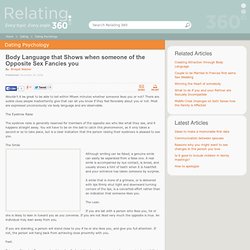

Top 10 Most Famous Thought Experiments. Thought experiments are mental concepts or hypotheses, often resembling riddles, which are used by philosophers and scientists as simple ways of illuminating what are usually very dense ideas.

Most often, they’re used in more abstract fields like philosophy and theoretical physics, where physical experiments aren’t possible. They serve as some hearty food for thought, but given their complex subject matter, it’s not unusual for even the thought experiment itself to be nearly incomprehensible. With this in mind, here are ten of the most famous thought experiments, along with explanations of the philosophical, scientific, and ethical ideas they work to explain: 10.
The Trolley Problem One of the most well known thought experiments in the field of ethics is the “Trolley Problem,” which goes something like this: a madman has tied five innocent people to a trolley track. What it Means: 9. How to tell in 15 minutes whether someone likes you - by Bridget Webber. Bridget Webber's image for: "Body Language that Shows when someone of the Opposite Sex Fancies you" Caption: Location: Image by: Wouldn't it be great to be able to tell within fifteen minutes whether someone likes you or not?

The Eyebrow Raise The eyebrow raise is generally reserved for members of the opposite sex who like what they see, and it happens straight away. The Smile Although smiling can be faked, a genuine smile can easily be separated from a false one. A smile that is more of a grimace, or is delivered with lips firmly shut tight and downward turning corners of the lips, is a concerted effort rather than an indication that someone likes you. The Lean. If you are sat with a person who likes you, he or she is likely to lean in toward you as you converse. If you are standing, a person will stand close to you if he or she likes you, and give you full attention. Feet. Eye Contact. 10 Brilliant Social Psychology Studies. Ten of the most influential social psychology experiments.

“I have been primarily interested in how and why ordinary people do unusual things, things that seem alien to their natures.Why do good people sometimes act evil? Why do smart people sometimes do dumb or irrational things?” –Philip Zimbardo Like eminent social psychologist Professor Philip Zimbardo (author of The Lucifer Effect: Understanding How Good People Turn Evil), I’m also obsessed with why we do dumb or irrational things. The answer quite often is because of other people – something social psychologists have comprehensively shown.
Over the past few months I’ve been describing 10 of the most influential social psychology experiments. Each one tells a unique, insightful story relevant to all our lives, every day. 1. The ‘halo effect’ is a classic social psychology experiment. » Read on about the halo effect -» 2. » Read on about cognitive dissonance -» 3. » Read on about Sherif’s Robbers Cave experiment -» BEHAVIORAL Foundations for Value Ethics - Part 1. BEHAVIORAL Foundations for Value Ethics - Part 1. Hacking Knowledge: 77 Ways to Learn Faster, Deeper, and Better. If someone granted you one wish, what do you imagine you would want out of life that you haven’t gotten yet?

For many people, it would be self-improvement and knowledge. Newcounter knowledge is the backbone of society’s progress. Great thinkers such as Leonardo da Vinci, Thomas Edison, Benjamin Franklin, Albert Einstein, and others’ quests for knowledge have led society to many of the marvels we enjoy today. Your quest for knowledge doesn’t have to be as Earth-changing as Einstein’s, but it can be an important part of your life, leading to a new job, better pay, a new hobby, or simply knowledge for knowledge’s sake — whatever is important to you as an end goal. Life-changing knowledge does typically require advanced learning techniques. Health Shake a leg. Balance Sleep on it. Perspective and Focus Change your focus, part 2.
Recall Techniques Listen to music. Visual Aids Every picture tells a story. Verbal and Auditory Techniques Stimulate ideas. Kinesthetic Techniques. Learning: Rapidly Create Online Courses.